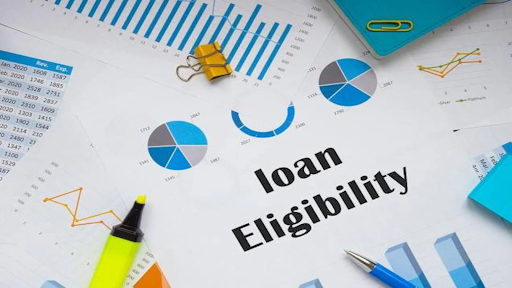Personal Loan Eligibility in India & Tips to Boost Approval
In today’s fast-paced world, personal loans have become a convenient financial tool for individuals in India to address unexpected expenses, consolidate debts, or fund major life events. However, understanding the personal loan eligibility criteria and enhancing your chances of approval are crucial to successfully securing the funds you need.
This article delves into the eligibility requirements for personal loans in India and offers practical tips to improve your prospects of obtaining a loan.
Understanding Personal Loan Eligibility Criteria
When applying for a personal loan, several factors influence the lender’s decision. These criteria assess the applicant’s ability to repay the loan without putting undue financial stress on their resources. The primary personal loan eligibility factors include:
1. Age
Most financial institutions stipulate that the applicant must be within a certain age range, typically between 21 and 58 years for salaried individuals and up to 65 years for self-employed individuals. Age serves as an indicator of repayment capacity, with those closer to retirement age needing to demonstrate plans for continued income post-retirement.
2. Income
A consistent and sufficient source of income is vital for loan approval. Lenders evaluate income to gauge the borrower’s repayment ability. Salaried individuals may need to show a minimum monthly income, which varies between lenders. Self-employed individuals are typically required to have a stable income over the past two or three years.
3. Employment Stability
For salaried individuals, employment stability is crucial. Lenders prefer candidates who have worked for at least two years, with a minimum of one year with their current employer. This indicates reliability and financial stability, strengthening personal loan eligibility. Self-employed individuals need proof of their business continuity and success.
4. Credit Score
A good credit score, typically above 700, enhances the likelihood of loan approval. It reflects the individual’s creditworthiness, past repayment behavior, and financial discipline. Lenders use this metric to gauge the risk of lending to an applicant.
5. Existing Liabilities
Lenders assess the applicant’s fixed obligations to income ratio (FOIR), which compares monthly debt obligations to monthly income. A lower FOIR indicates a higher capacity for fresh debt, enhancing eligibility for a personal loan.
6. Documentation
Applicants must provide comprehensive documentation, including identity proof, address proof, income proof (such as salary slips or income tax returns), and bank statements. Incomplete or inaccurate documentation can lead to delays or rejection.
How to Increase Your Chances of Personal Loan Approval
Meeting the eligibility criteria is just the first step. Here are some proactive measures to bolster your chances of securing a personal loan:
1. Improve Your Credit Score
If your credit score is below ideal, take steps to improve it. Pay off existing debts, reduce credit card balances, and ensure timely payments on current obligations. Regularly reviewing your credit report for errors and rectifying them can also enhance your score.
2. Maintain Financial Stability
Lenders prefer applicants who demonstrate consistent financial stability. Ensure you have a regular income and employment record. For self-employed individuals, maintaining a healthy cash flow and having a solid track record of business transactions over time establishes reliabili
3. Choose the Right Lender
Different lenders have varying eligibility criteria and interest rates for a personal loan. Research multiple lenders to find one whose requirements align closely with your financial profile. Compare interest rates, processing fees, and repayment flexibility before settling on a lender.
4. Opt for a Professional Approach
Your professional background can influence loan approval. Lenders often favor individuals employed with reputable companies or established in a credible industry. If possible, highlight stable tenure or promotion within your organization as an indicator of job security.
5. Keep Your Documents Updated
Ensure that all required documents are current and accurately reflect your financial status. Updated documentation instills confidence in the lender regarding your financial management skills and transparency.
6. Reduce Existing Debt
Before applying for a new loan, consider lowering your current debt burden. This can improve your debt-to-income ratio, making lenders more confident in your ability to manage a new loan.
7. Apply for the Right Loan Amount
Requesting a reasonable loan amount in accordance with your income and repayment capacity increases approval chances. Overestimating your repayment ability by asking for an excessively large sum may raise red flags with lenders.
Conclusion
Understanding the personal loan eligibility criteria in India is crucial for any prospective borrower. By comprehensively evaluating these criteria and implementing strategies to enhance your profile, you can greatly improve your chances of obtaining a personal loan. A thoughtful approach—strengthening your credit score, maintaining a stable income, and choosing the right lender—can lead to successful loan approval, helping you secure the funds needed for any financial requirement. As always, responsible borrowing and timely repayment are key to maintaining financial health and creditworthiness for future financial needs.

